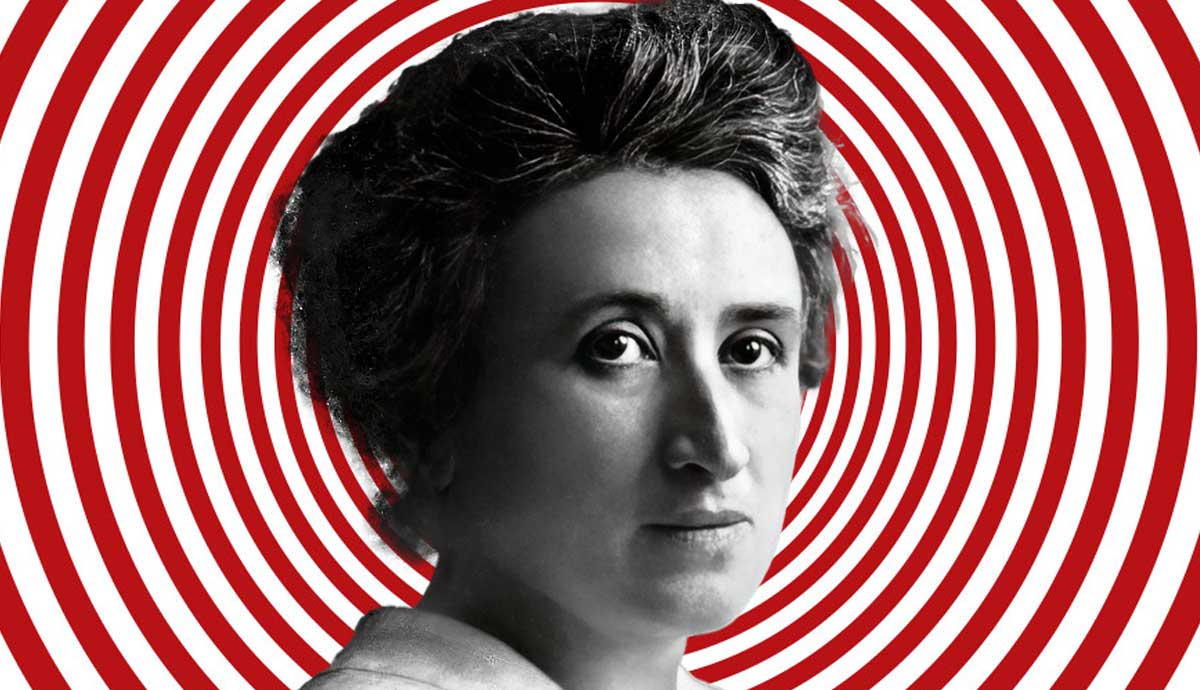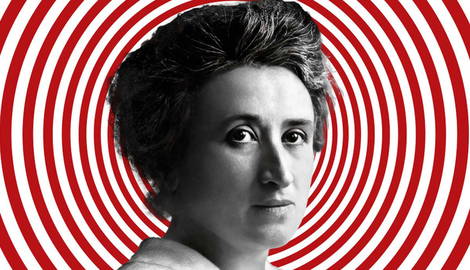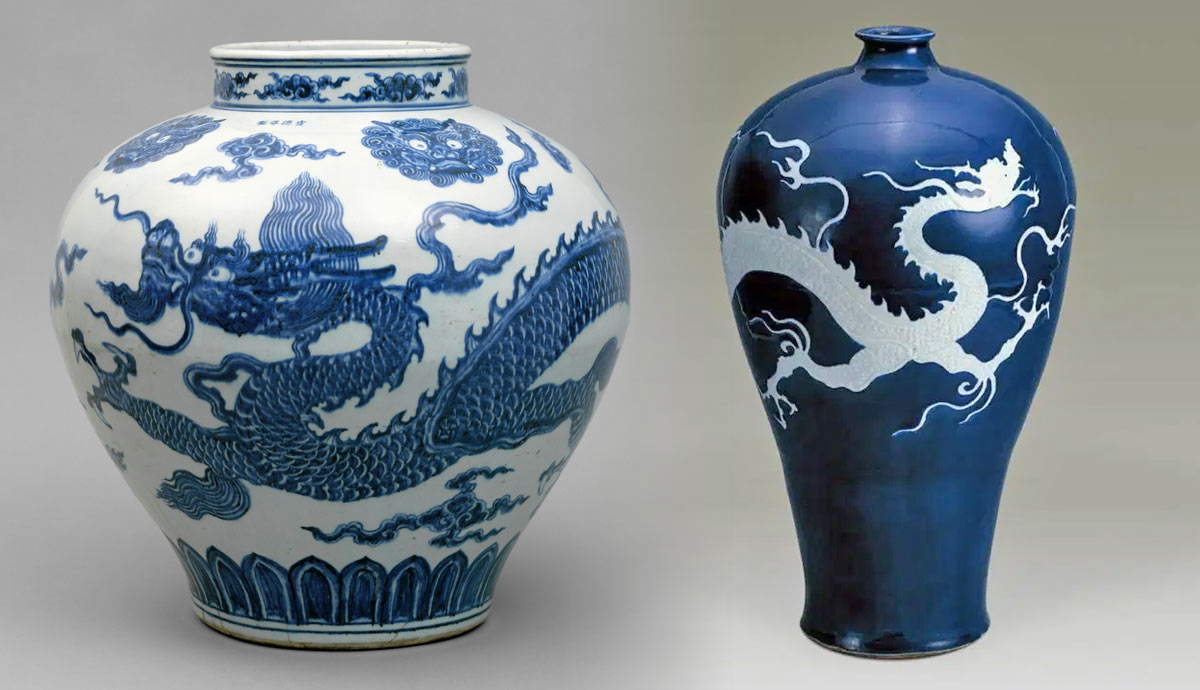
Despite her small stature Rosa Luxemburg stands as a towering figure in the history of international socialism. She passionately advocated social reform, believing that only revolutionary transformation could make it permanent. A staunch anti-war activist she asserted that the world faced a stark choice: socialism or barbarism. A revolutionary to the end she died a martyr’s death in 1919. Rosa Luxemburg was a brilliant and original revolutionary humanist in the Marxist tradition, celebrated for her theoretical work as well as her unwavering commitment to revolutionary socialism.
A Fiercely Independent Thinker

Rosa Luxemburg was born in 1871 to a Jewish family in Russian-occupied Poland. After developing a serious hip problem at age 5 she was left with a lifelong limp. As a female, disabled, Polish Jew, Rosa Luxemburg faced serious challenges. Against the odds, she excelled at school and became one of the first women in Europe to earn a doctorate in economics and law. Dr. Luxemburg was a fiercely independent thinker who gained enemies on the left and the right and criticized her comrades (including Lenin) as much as she did her political enemies. She joined the Polish Marxist Party in 1887 and after moving to Germany was active in the politics of the Second International, German Socialist Party (SPD), and Spartacus League (Spartakusbund) – which became the German Communist Party (KPD).
Since childhood, she wielded a formidable intellect and strong political opinions. Later in life, she was jailed many times for her ideas. In 1904 for criticizing the German Keizer, and multiple times between 1915 and 1918 for her anti-war activism and polemics.
Critical Theorist

In 1913, Rosa Luxemburg completed The Accumulation of Capital. While she argued with Karl Marx that capitalism was fundamentally unstable and prone to crises, she rejected the cut and thrust of his Capital Vol. 2 which implied that capitalism was a closed system of accumulation, to argue that it was instead dependent on relentless expansion. Luxemburg’s analysis that “capitalism tends to engulf the entire globe and to stamp out all other economies, tolerating no rival at its side” led to the conclusion that “it is unable to exist by itself, it needs other economic mediums as its soil.”
The political import of her work was a critique of imperialism that highlighted how the necessary expansion of capital into non-capitalist areas of the world was intertwined with trade, but above all, imperial conquest and war. Imperialism was not external to capitalism but a core component of its survival.
Socialist Revolutionary

Germany’s imminent defeat in the Great War sparked chaos. On 3 November 1918 German sailors, ordered into a near-suicidal battle for the glory of the Kaiser, mutinied. News of the revolt spread quickly and within days a series of mass political strikes against the war and growing state repression ultimately led to the abdication of Willhelm II.
On 9 November Friedrich Ebert of the SPD declared the Weimar Republic, and Karl Liebknecht declared a Free German Socialist Republic from the royal balcony in Berlin. That same day Rosa Luxemburg was released from prison. Luxemburg, who had written the Sparticist anti-war Junius Pamphlet (1915) from prison, was seen as a dangerous revolutionary voice. The SPD soon launched a violent counter-revolution spearheaded by the Frikorps, a protofascist paramilitary loyal to Ebert.
After the uprising was crushed, on 15 January 1919 Luxemburg and Liebknecht were apprehended, interrogated, and executed. Liebknecht was shot in the back and handed to the police as an “unknown corpse” while Luxemburg was shot in the temple and thrown into the Berlin Landwehr Canal.
Revolutionary Humanist

Rosa Luxemburg might above all be remembered as a revolutionary humanist. While she was proud of her identity as a woman and of her Jewish heritage, she distinctly chose not to draw general ideas from the fact of her identity. Instead, her concern was universal solidarity with the oppressed.
Sent a book about the persecution of Spinoza by a friend while in prison, she responded with characteristic verve: “what do you want with this theme of the ‘special suffering of the Jews’? I am just as much concerned with the poor victims on the rubber plantations of Putumayo, the black people in Africa with whose corpses the Europeans play catch… I have no special place in my heart for the [Jewish] ghetto. I feel at home in the entire world wherever there are clouds and birds and human tears.”
In the face of impending climate catastrophe, economic crisis, and ongoing war, many believe that Rosa Luxemburg’s calls for socialism and democracy remain profoundly relevant.










